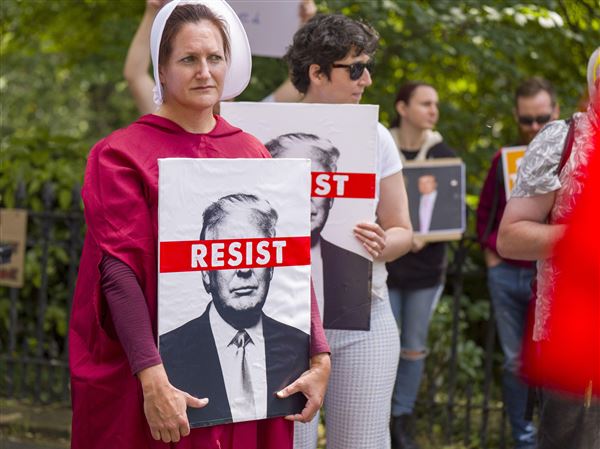The U.S. attorney in Buffalo, N.Y., is deciding whether to appeal a judge's dismissal of the government's case against a college professor for illegally obtaining biological materials from a researcher at the University of Pittsburgh for use in an art exhibit.
U.S. District Judge Richard J. Arcara ruled Monday the mail and wire fraud case brought nearly four years ago against Steven J. Kurtz, an art professor at the State University of New York at Buffalo, was "insufficient on its face."
Peggy Kelly McFarland, spokeswoman for U.S. Attorney Terrance P. Flynn of the Western District of New York, said yesterday her office would have no comment on Judge Arcara's dismissal.
"We're reviewing the decision now and are trying to decide whether to appeal it," she said.
Mr. Kurtz is a founding member of the Critical Art Ensemble, which has used DNA and other biological materials in works meant to examine the impact of science and technology on consumer culture. The federal case against him drew international attention, particularly in artistic circles which sharply criticized the government for improperly intruding upon artistic freedom.
Mr. Kurtz, a former art professor at Carnegie Mellon University, obtained the biological materials from his friend, Pitt professor Dr. Robert E. Ferrell. Dr. Ferrell ordered the material and had it sent to Pitt's human genetics lab, and then forwarded it to Mr. Kurtz's home in Buffalo, N.Y.
Mr. Kurtz planned to use the bacteria as part of an art project addressing genetically modified food. Health officials have said the materials posed a low risk of human infection.
Originally charged with mail and wire fraud, Dr. Ferrell entered a plea in October to a lesser misdemeanor charge of "mailing an injurious article" which carried a recommended guideline range of up to six months in prison and a $5,000 fine. In a statement, his family said he pleaded guilty for health reasons. Since the prosecution began, he suffered three strokes and dealt twice with cancer, which is now in remission
In February, Judge Arcara sentenced Dr. Ferrell to serve 12 months unsupervised probation and to pay a $500 fine. In exchange for his plea, Dr. Ferrell was required to cooperate with the case against his friend.
His attorney, Efrem M. Grail, said yesterday his client did not want to comment on the case.
"Dr. Ferrell, because of his physical condition and his desire to focus his energies on teaching and research obligations to the University of Pittsburgh and his family, was pleased to put his case behind him several months ago," Mr. Grail said. "I'm sure that he feels [hopeful] that his co-defendant may perhaps do the same now as well, pending of course, the government's decision on whether or not to appeal."
The case began as a bioterrorism investigation in May 2004 when Mr. Kurtz called 911 to report his wife had died, apparently from a heart attack. First responders found the biological materials -- two kinds of bacteria -- and equipment they likewise deemed suspicious and alerted the FBI's Joint Terrorism Task Force. They showed up in full biohazard gear to search his home.
Mr. Kurtz's wife died of natural causes and the lab equipment was determined to be part of his artwork but he was indicted for receiving the biological material on charges that carried a maximum of 20 years in prison.
First Published: April 23, 2008, 4:00 a.m.















